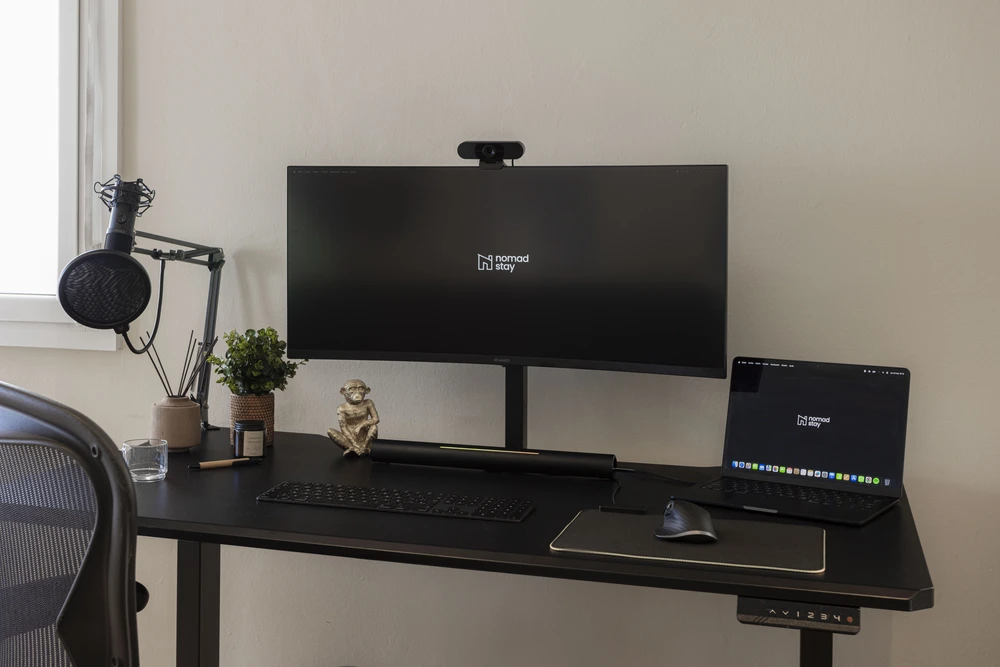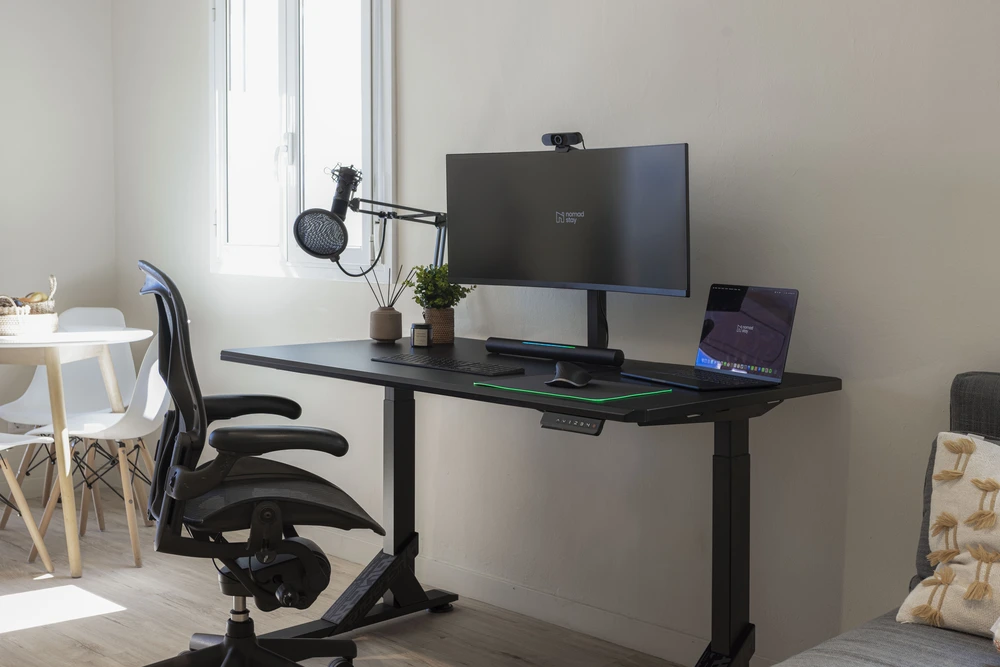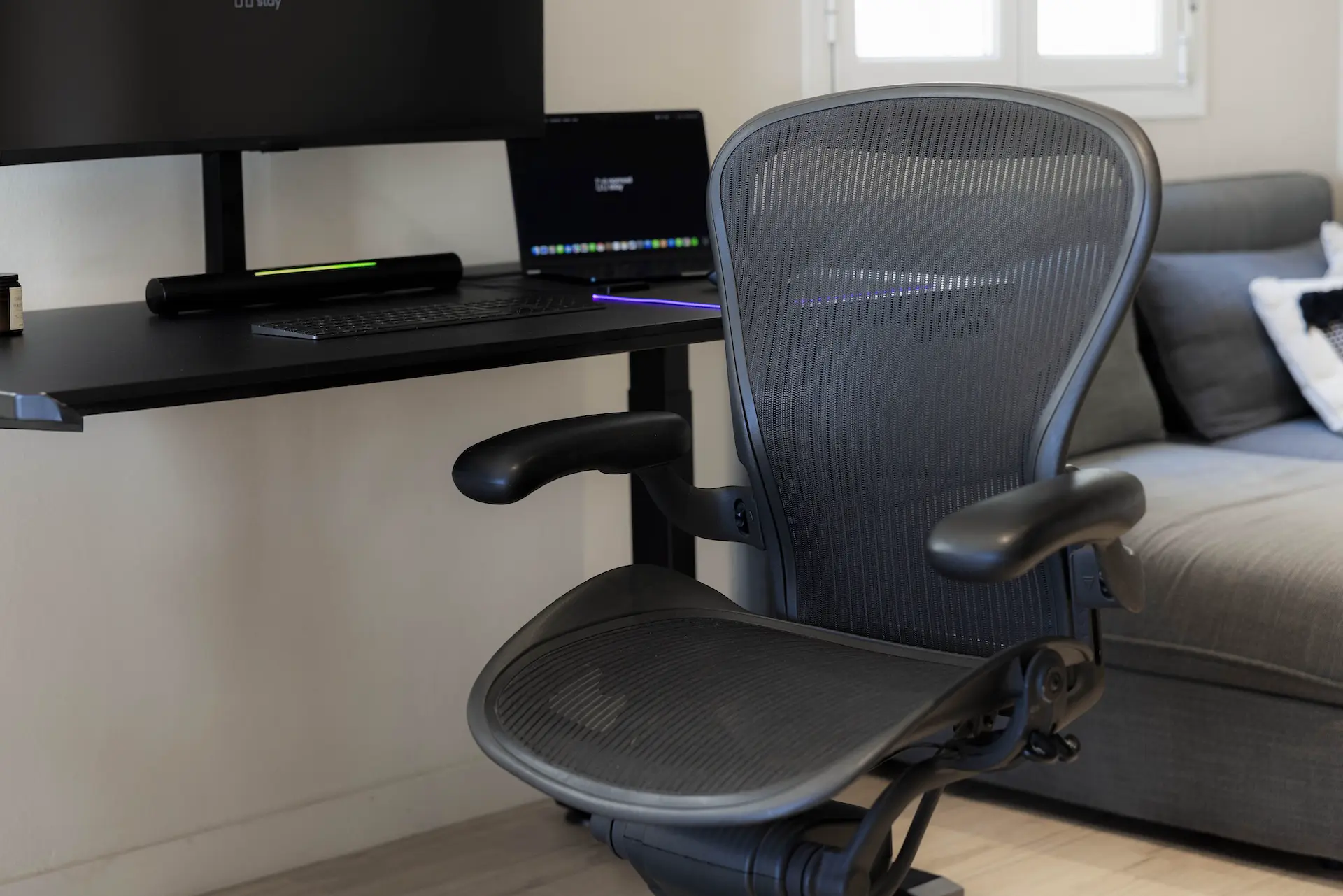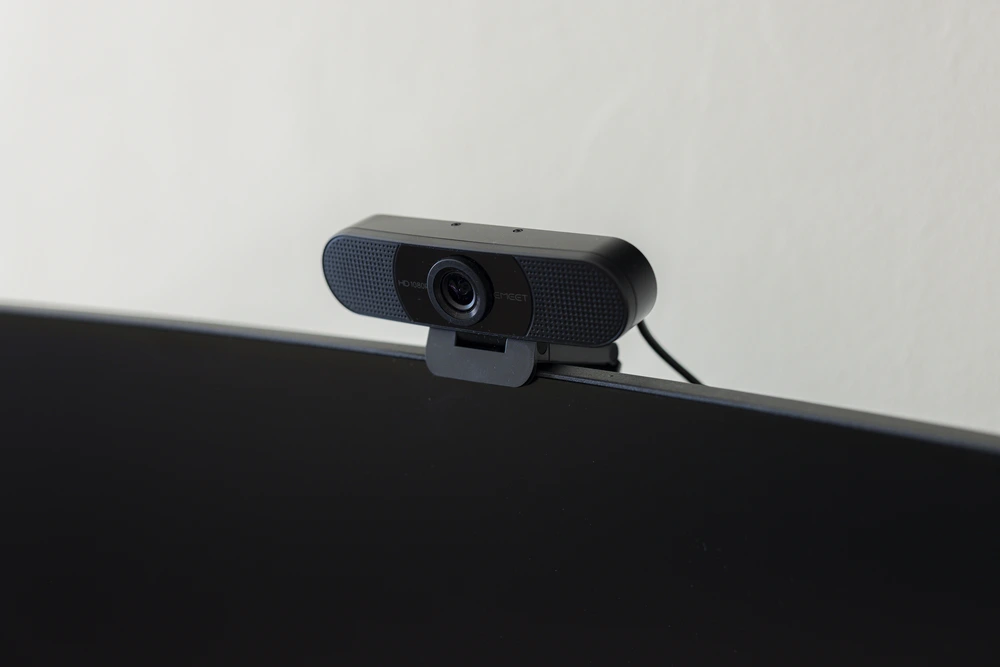Ultimate Guide to Stress Management for Remote Workers
Learn effective strategies for managing stress while working remotely, including time management, mental health support, and creating a productive workspace

Ultimate Guide to Stress Management for Remote Workers
Remote work can be stressful. If you're feeling overwhelmed by blurred boundaries, isolation, or constant digital communication, you're not alone. Here's what you need to know to manage stress effectively:
- Key Stressors: Isolation, work-life imbalance, and digital overload.
- Impact: Burnout, poor mental health, and reduced productivity.
- Solutions:
- Time Management: Use tools like the Pomodoro Technique and task organizers.
- Work-Life Balance: Schedule breaks, stick to routines, and set boundaries.
- Mental Health Practices: Try mindfulness, virtual socializing, or teletherapy.
- Ergonomic Workspace: Invest in comfortable furniture and proper lighting.
- Long-Term Strategies: Maintain a daily routine, track stress triggers, and stay connected.
Start by creating a dedicated workspace and building routines that prioritize your well-being. Managing stress isn't just about coping - it's about thriving.
Managing Remote Work Stress and Burnout Strategies for a Healthy Work Life Balance
Understanding Stress in Remote Work
Remote work comes with its own set of challenges that can take a toll on mental health. Recognizing these stressors is key to finding ways to manage them and staying productive over time.
Causes of Stress for Remote Workers
Working remotely offers flexibility, but it also brings hurdles that aren't as common in office environments. Here are a few major ones:
-
Digital Communication Overload: Remote work often means relying heavily on digital tools to communicate. Constant notifications and the pressure to always be available can lead to mental fatigue and stress.
-
Blurred Work-Life Boundaries: Without a clear divide between work and home life, it’s easy to work longer hours, struggle to disconnect, and lose personal time. This can throw routines off balance.
-
Professional Isolation: Being physically apart from colleagues can make it harder to collaborate, build trust, and maintain social connections. It can also slow down career growth.
Effects of Stress on Mental Health
If stress isn’t managed, it can have serious effects on both mental health and overall productivity. Remote workers are at risk of burnout, anxiety, and depression, which often show up as physical symptoms like:
- Trouble sleeping
- Changes in eating habits
- Feeling constantly tired
- Weakened immune system
Knowing what causes stress is the first step. In the next sections, we’ll dive into practical ways to handle these challenges and protect your mental well-being while working remotely.
Effective Stress Management Techniques for Remote Workers
Working remotely can blur the lines between personal and professional life, making stress management a key priority. Here are some practical methods to help you stay productive and maintain your well-being.
Time Management and Productivity
Managing your time well can significantly reduce stress. One popular method is the Pomodoro Technique, which helps you maintain focus by working in short, timed intervals.
Here are some ways to improve productivity:
- Organize Your Tasks: Break big projects into smaller, more manageable steps using tools like Trello or Asana. Setting earlier deadlines can also help you stay on track and avoid last-minute stress.
- Minimize Distractions: Activate 'do not disturb' mode on your devices to stay focused during work hours.
Achieving Work-Life Balance
Balancing work and personal life is one of the biggest challenges of remote work. A study by the American Psychological Association found that 67% of remote workers experience work-related stress, and 52% struggle with maintaining boundaries between work and home life [5].
To create a better balance:
- Replace your former commute time with activities like morning exercise or mindfulness.
- Schedule regular breaks throughout your day to recharge.
- Take an evening walk or engage in a relaxing activity to signal the end of your workday.
Mental Health Support and Practices
Staying connected with others can help combat feelings of isolation. Stanford research highlights the importance of social interactions in reducing stress [5]. Consider these mental health tips:
- Mindfulness and Meditation: Just 10 minutes of meditation can significantly lower stress levels [5].
- Virtual Socializing: Stay in touch with friends and colleagues through video calls or online meetups.
- Teletherapy: Many companies now offer teletherapy as part of their benefits, making it easier to access professional support.
Lastly, take a close look at your work environment. A well-organized and comfortable space can make a big difference in supporting both your productivity and overall well-being.
sbb-itb-8c959d1
Optimizing Your Remote Work Environment
Research indicates that having a dedicated workspace can lower stress levels and improve job satisfaction. A well-designed environment that supports both productivity and comfort is key to thriving in a remote work setup.
Setting Up an Ergonomic Workspace
A well-organized and ergonomic workspace isn't just about comfort - it can also help you stay efficient and reduce both physical strain and mental fatigue. Here's how you can create a better setup:
- Monitor and Lighting: Keep your monitor at eye level and use proper lighting, such as natural light or adjustable task lamps, to reduce screen glare. This helps prevent eye strain and keeps your energy up throughout the day.
- Furniture: Use an adjustable chair and desk to maintain good posture. These small adjustments can help you avoid physical discomfort over time.
- Organization: Divide your workspace into zones - one for essential tasks, one for frequently used items, and another for storage. A clutter-free area makes it easier to focus and reduces mental exhaustion.
Using Services Like Rent Remote
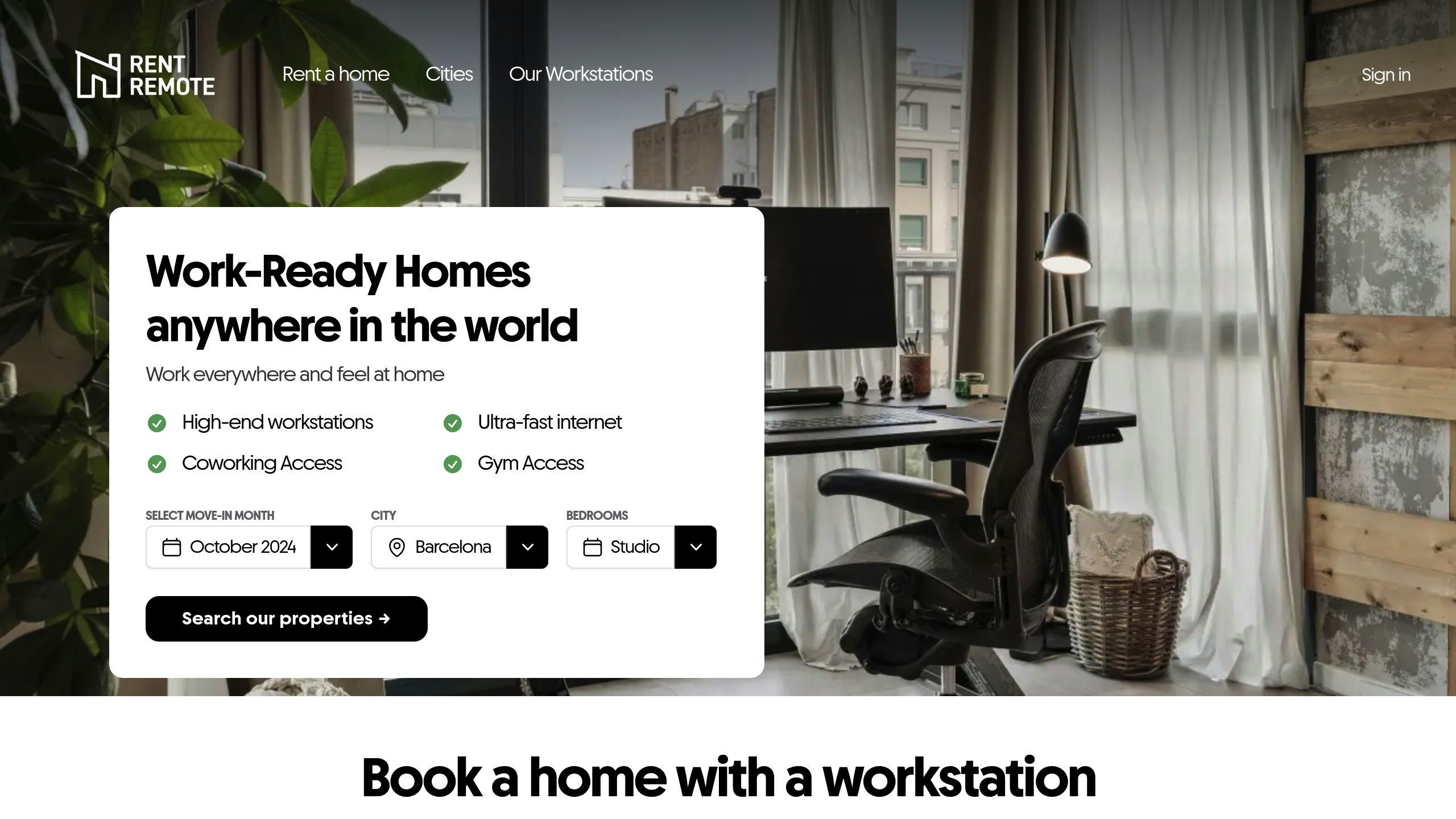
If you're a remote worker looking for convenience, services like Rent Remote can take the stress out of setting up a workspace. They offer fully equipped accommodations tailored for remote work in cities such as Barcelona, Paris, Lisbon, and Madrid.
These spaces include:
- High-speed internet
- Ergonomic workstations
- Access to coworking areas
- Central locations with amenities that support work-life balance
Starting at €2,000 per month, these accommodations eliminate the need for setting up your own workspace, making it easier to stay productive while working abroad.
A well-thought-out workspace can make a world of difference in managing stress and staying productive.
Maintaining Long-Term Stress Management
For remote workers, sticking to a structured daily schedule with consistent activities can help manage stress and maintain productivity.
Establishing a Daily Routine
Incorporate these activities into your day:
- Start your morning right: Go for a walk and enjoy a healthy breakfast to boost your energy and focus.
- Work smarter: Use the Pomodoro Technique for focused work sessions.
- Take breaks: Short breaks throughout the day help you recharge and stay productive.
- Set boundaries: Signal the end of your workday by enabling "do not disturb" mode on your devices.
While routines set a strong foundation, staying connected with others is just as important for long-term well-being.
Building Connections and Community
Feeling isolated can elevate stress levels for remote workers. Staying connected with colleagues and peers can make a big difference.
"Remote workers who have frequent communication with their managers report higher engagement and morale." - Harvard Business Review [1]
Here are some ways to maintain strong connections:
- Join virtual coffee chats with your team for casual conversations.
- Get involved in professional communities to share experiences and advice.
- Participate in group wellness activities or virtual events.
- Schedule weekly team collaboration sessions to stay aligned and engaged.
Revisit these practices regularly to ensure they continue to support your mental health and work-life balance.
Regularly Reviewing and Adjusting Strategies
Keeping a stress journal can help you identify patterns and triggers, making it easier to tweak your routines and strategies for better results [3].
Watch for these signs that your current approach might need a refresh:
- Productivity starts to drop.
- Sleep quality worsens.
- Work-life boundaries become harder to maintain.
- Feelings of isolation increase.
Conclusion: Succeeding as a Remote Worker
Key Points to Remember
Thriving in a remote work setup requires consistent stress management and smart strategies. Research highlights that setting clear boundaries and maintaining regular communication play a big role in improving well-being for remote workers. Combining effective time management, mental health care, and a well-prepared workspace lays the groundwork for long-term success.
An ergonomic workspace, strong internet connection, and clearly defined boundaries can help reduce stress and improve productivity. Adding regular exercise and mindfulness techniques into your routine can further support a balanced remote work lifestyle.
By focusing on routines and fine-tuning your environment, you're better prepared to put these ideas into practice.
Next Steps for Stress Management
Managing stress effectively starts with a plan you can stick to. Here are some practical strategies backed by research:
| Strategy | Action Step |
|---|---|
| Virtual Counseling | Book regular sessions with mental health professionals |
| Time Management | Use focused work blocks with scheduled breaks |
| Workspace Setup | Invest in ergonomic furniture or explore remote-work options |
Start by creating a dedicated workspace or seeking out accommodations if your current setup isn't ideal. Productivity tools like the Pomodoro Technique can help you stay focused and avoid burnout.
Stress management isn't a one-time effort. Keep an eye on your productivity, sleep patterns, and overall well-being, and adjust your approach as needed.
FAQs
How to manage remote work stress?
Dealing with stress while working remotely involves focusing on mental health, maintaining a routine, and creating a comfortable work environment. Research from Harvard Business Review highlights that remote workers who keep in regular contact with their managers report higher engagement and lower stress levels [1].
Here are some effective strategies to help:
-
Prioritize Mental Health: Virtual therapy or other professional support can be a great way to address stress before it escalates [1].
-
Master Time Management: Techniques like the Pomodoro Technique can improve focus and help avoid burnout [2][4].
-
Stay Connected and Active: Daily walks, virtual coffee chats with colleagues, and setting up a dedicated workspace can combat feelings of isolation. With 43% of remote workers reporting regular loneliness [5], these steps can make a big difference.
-
Create a Productive Environment: A well-organized workspace with ergonomic furniture and strong internet can reduce stress and improve efficiency.
-
Set Clear Boundaries: Use 'do not disturb' modes or similar tools after work hours to protect your personal time and avoid burnout [2][4].









